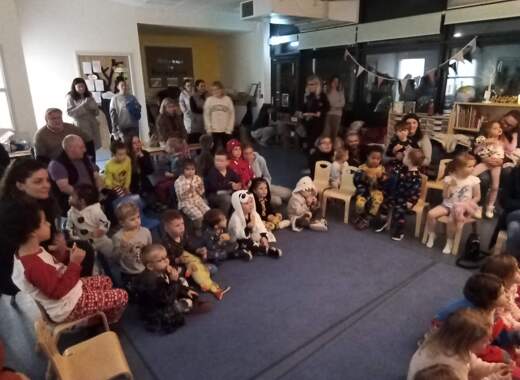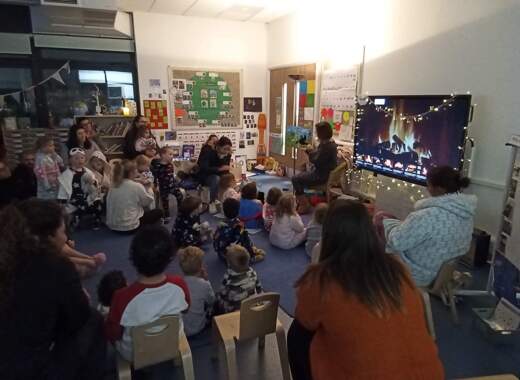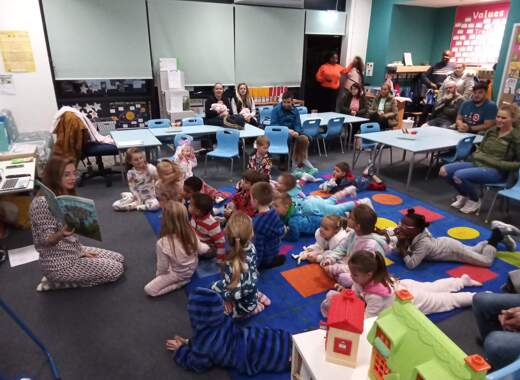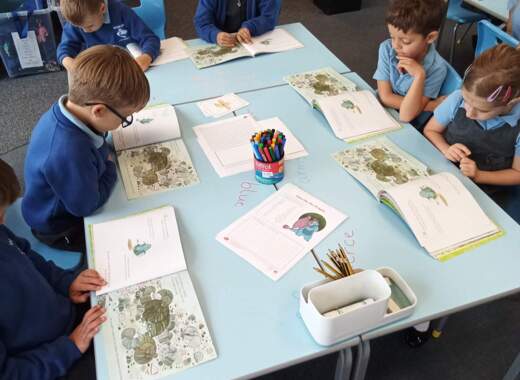English
English and the teaching of English is the foundation of our curriculum. Our main aim is to ensure that every single child becomes primary literate and progresses in the areas of reading, writing, speaking and listening. We ensure that English is not only taught as a discrete subject but that it is embedded throughout the curriculum. Through using high-quality texts, immersing children in vocabulary rich learning environments and ensuring curriculum expectations and the progression of skills are met, the children at Windrush will be exposed to a language rich, creative and a continuous English curriculum. This will not only enable them to become primary literate but will also develop a love of reading, creative writing and purposeful speaking and listening.
We want our children to write clearly, accurately and coherently, adapting their language and style in and for a range of contexts, purposes and audiences. We provide opportunities for children to communicate independent views and opinions, respond imaginatively and express feelings through spoken and written language.
We believe that all pupils should be encouraged to take pride in the presentation of their writing, in part by developing a neat, joined, handwriting style by the time they move to secondary school. We believe that all good writers refine and edit their writing over time, so we want children to develop independence in being able to identify their own areas for improvement in all pieces of writing, editing their work effectively during and after the writing process.
Our aim is to develop children’s love of reading for pleasure and for our children to read a wide range of books by different authors and challenge themselves within their choices. At Windrush we believe that all pupils should have the opportunity to be fluent, confident readers who are able to successfully comprehend and understand a wide range of texts. We want pupils to develop a love of reading, a good knowledge of a range of authors, and be able to understand more about the world in which they live through the knowledge they gain from texts. By the end of their time at primary school, all children should be able to read fluently, and with confidence, in any subject in their forthcoming secondary education. We do not put ceilings on what pupils can achieve in reading and we do not hold pre-conceptions about any pupils’ ability to make progress. We understand the importance of parents and carers in supporting their children to develop both word reading and comprehension skills, and so we want to encourage a home-school partnership which enables parents and carers to understand how to enhance the skills being taught in school through good quality texts.
We aim to recognise the language experiences of children at home and in the wider community and to increase children’s understanding of how language is used in the world beyond school.
The Opening Doors Approach
The school has taken part in the Opening Doors KS1 training with Julie Sargent. This approach uses high quality texts with ambitious vocabulary that enables children to experience the literary world in a way they may not be able to independently. Through access strategies, vocabulary lessons and purposeful writing, children learn to love to write and understand how they can make their own and others work even better. The school is now part of the Opening Doors Network with Bob Cox.
Read Write Inc. Phonics
Read Write Inc. phonics is the systematic synthetic phonics scheme that the school and RLT follow to ensure high quality teaching of phonics and early reading. The scheme provides excellent resources which cover all of the sounds needed to access the Year 1 phonics screening check. It also focuses on speeding up reading, fluency and comprehension so children are prepared for more challenging reads in year 2 and above. The children are regularly assessed and grouped according to their needs and level of challenge or support. These groups then enable adults to provide books for reading at home which closely match the children's phonological awareness. Staff have been trained in the application of this scheme and any new members of the school are provided with the same level of training or refresher training. The Read Write Inc. Spelling Zone will then be used to support the teaching of spelling in year 2 and above. This ensures continuity and means that children are able to attend to the learning rather than spending time learning new routines, gestures and expectations.
| Subject Documents |
|---|
| KS1 English Curriculum |
| RWI an overview |





